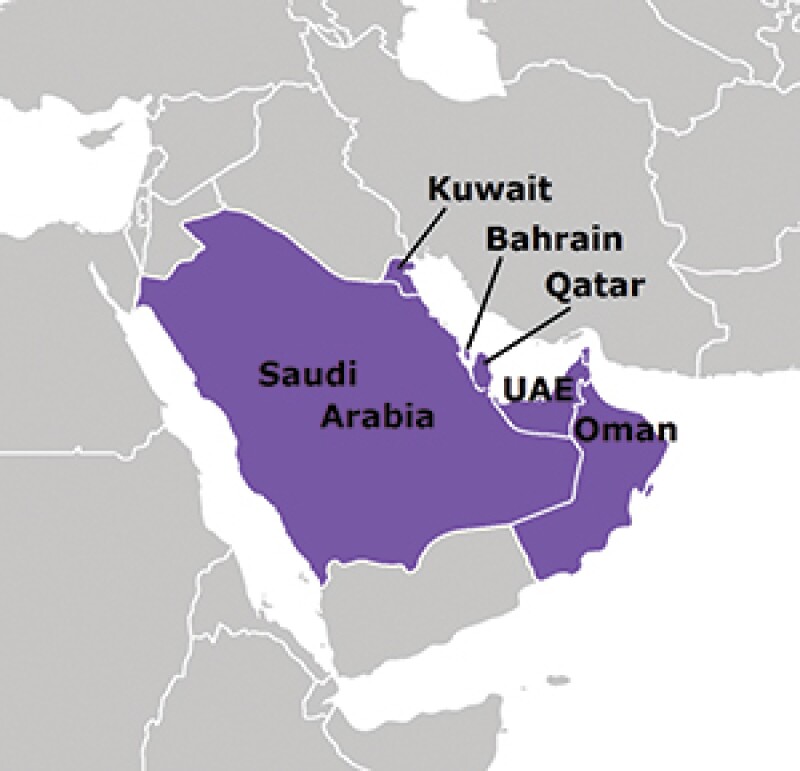
|
The Gulf Cooperation Council (GCC) was also in the Global Tax 50 2016 |
On the website of the newly-created United Arab Emirates federal tax authority's website, there is a hefty FAQ section. The first frequently-asked question: What is tax?
When the six countries which make up the GCC first announced that they would be bringing in a unified VAT on January 1 2018, most companies took it with not so much a pinch but a handful of salt. However, the sceptics have – in part, at least – been proven wrong.
While introducing taxes has been talked of in the past, enduringly low oil prices have pushed the GCC to take VAT implementation seriously due to unworkable national budgets. Saudi Arabia, for example, needs an oil price of around $106 per barrel to 'break even' on its budget. Oil started the year at $55 a barrel, falling as low as $45 and rallying to the $60s by December 2017 – put simply, the GCC needs tax revenue.
While it has been a year of draft laws and false dawns in some jurisdictions, Saudi Arabia and the UAE (which has a break-even price of around $73 per barrel) will introduce VAT on January 1. But Bahrain, Kuwait, Oman and the partially-ostracised Qatar (break-even price: around $56 per barrel) will delay VAT implementation for six to 12 months, or perhaps even longer.
Even if it does take another year or two for VAT to be introduced across the GCC, this is still a massive achievement. While India's GST implementation had its complexities due to conflicting national and state interests, this is the first time a group of countries has introduced a unified VAT or GST system (nearly) simultaneously.
The only comparable example is the EU, on which the GCC's VAT system has been modelled. But when the EU system was formed, and when its VAT rules were being legislated, its member states were already familiar with VAT, and most had their own systems – as attested to by the derogations from the VAT Directive.
The impact of the move to VAT in the GCC – however smoothly or chaotically it happens – will be immense. In some GCC countries, tax is simply not a concept people are familiar with, as the UAE tax authority's FAQ section shows.
For large global companies with vast tax departments, which are well-versed in VAT, the main problem in this jurisdiction will be the inexperience of the tax authorities, which in the UAE had to be built practically from scratch to administer VAT. Conversely, there are businesses throughout the GCC that find themselves almost completely unprepared for the changes, lacking the basic expertise required to carry out basic tasks like preparing a VAT invoice.
As late as April 2017, International Tax Review reported that half of businesses, including MNEs, operating across the Middle East or selling into the region had not started preparing for the new VAT system.
This means plenty of work for advisory firms, many of which have scrambled to open up offices in the region during the past 12 months, with numerous staff migrating to Dubai, Riyadh and Kuwait City. And it's not just advisory firms; companies are sending members of their tax departments over to the region to ease the shock of implementation, too.
"I remember when Australia introduced its VAT system back in 2000, there was an exodus from the EU VAT advisory community at that point," says Mark Agnew, tax director at Baker McKenzie. "I think this is on a much bigger scale because of the magnitude of the system."
Matthew Dwyer, a global tax recruiter at Cain Dwyer, says that "the growth numbers and stats for indirect tax teams are staggering", adding that the Big 4 in particular have been able to "front-load" their teams by bringing in staff before the January 1 2018 implementation date.
In such a key global region, where the vast majority of global companies will have operations or a trading relationship, getting VAT right will take time. However, a lack of readiness on the part of some businesses – and a lack of experience in dealing with VAT from the tax authorities and still more businesses – will make it a difficult start to 2018 for those involved.
The Global Tax 50 2017 |
|
|---|---|
The top 10 • Ranked in order of influence |
|
6. Arun Jaitley |
|
The remaining 40 • In alphabetic order |
|
| The Estonian presidency of the Council of the European Union |
|
| International Consortium of Investigative Journalists (ICIJ) |
|
| United Nations Committee of Experts on International Cooperation in Tax Matters |
|









